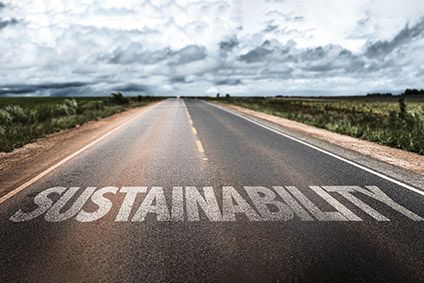
A survey by procurement and supply chain management specialist Efficio, who interviewed 529 C-suite leaders globally, found that while two of the top five strategic priorities for business leaders are ESG-focused, traditional business objectives remain the greatest focus.
“The corporate landscape is changing at a faster pace than ever before and, after more than two years of turmoil, organisations are reassessing all facets of their businesses,” the survey explains. “Core to this is investing in strategic projects that create long-term business value, secure business-resilience, and formally embed new ways of working.”
The research shows that almost half (49%) of corporates are investing in digital transformation programmes, while environmental sustainability (47%) is a close second.
The report, however, points out that the relative disconnect with strategic priorities implies that organisations are either early in the journey and hence still needing to gear up, or the investment is a compliance measure: more needs-focussed than strategic.
“Likely both, in many cases. It should therefore generally be viewed as a warning sign that we are still not moving at ESG issues fast enough, nor with the commitment to make real change,” the report states.
Highlights from the survey:
- 67% of Business Leaders agree that overpromising on sustainability-related goals is a major reputational risk to their organisation.
- Of those who have set targets to reduce their greenhouse gas emissions, only 33% state that they are very confident in their organisation’s ability to meet those targets.
- Fewer than two in five (38%) procurement teams capture metrics about the sustainability of the supply chain to measure the success of their team.
- 50% of procurement professionals identify recruiting and retaining people with the right knowledge and skills as key challenges.
- Almost half (49%) of CPOs face the challenge of a lack of board-level buy-in as to what Procurement does.
- 67% of CPOs think it is within procurement’s remit to deliver on sustainability; this compares to just 42% among the procurement professionals sample surveyed.
Significantly, expectations about the ability for a business to meet their own commitments are low. Of the 74% of businesses who have set or are in the process of setting a target for greenhouse gas emissions reduction or eradication, just 33% of business leaders in those businesses feel very confident in their organisation’s ability to meet the target.
According to research by non-profit environmental platform CDP, companies face up to US$120bn in costs from environmental risks in their supply chains by 2026. Similarly, earlier this year, the Bank of England’s first climate stress test suggested that UK banks and insurers would end up taking on nearly GBP340bn-worth of climate-related losses by 2050 unless action was taken to curb rising temperatures and sea levels.
Recently, Emma Howard Boyd, Chair of the Environment Agency, highlighted the risks of businesses failing to make credible plans and progress. This can lead to greenwashing, and the danger is that people “won’t realise this deception until it is too late,” she says.
So, whilst ESG has risen on the leadership agenda, it is not yet cemented in place with firm purpose or conviction. There remains a gap between aspiration and firm operational reality born from process, alignment and, above all, confidence of success.
The report outlines 10 steps to sustainable procurement:
- Understand your organisation’s ESG objectives
- Engage your sustainability leads
- Baseline your sustainable procurement approach and capability
- Triage your spend categories against sustainability themes
- Improve and update your sourcing approach
- Improve and update your SRM (supplier relationship management) approach
- Establish clear sustainability KPIs (key performance indicators)
- Invest in sustainable procurement training
- Build a sustainable procurement playbook
- Communicate your sustainable procurement policy



